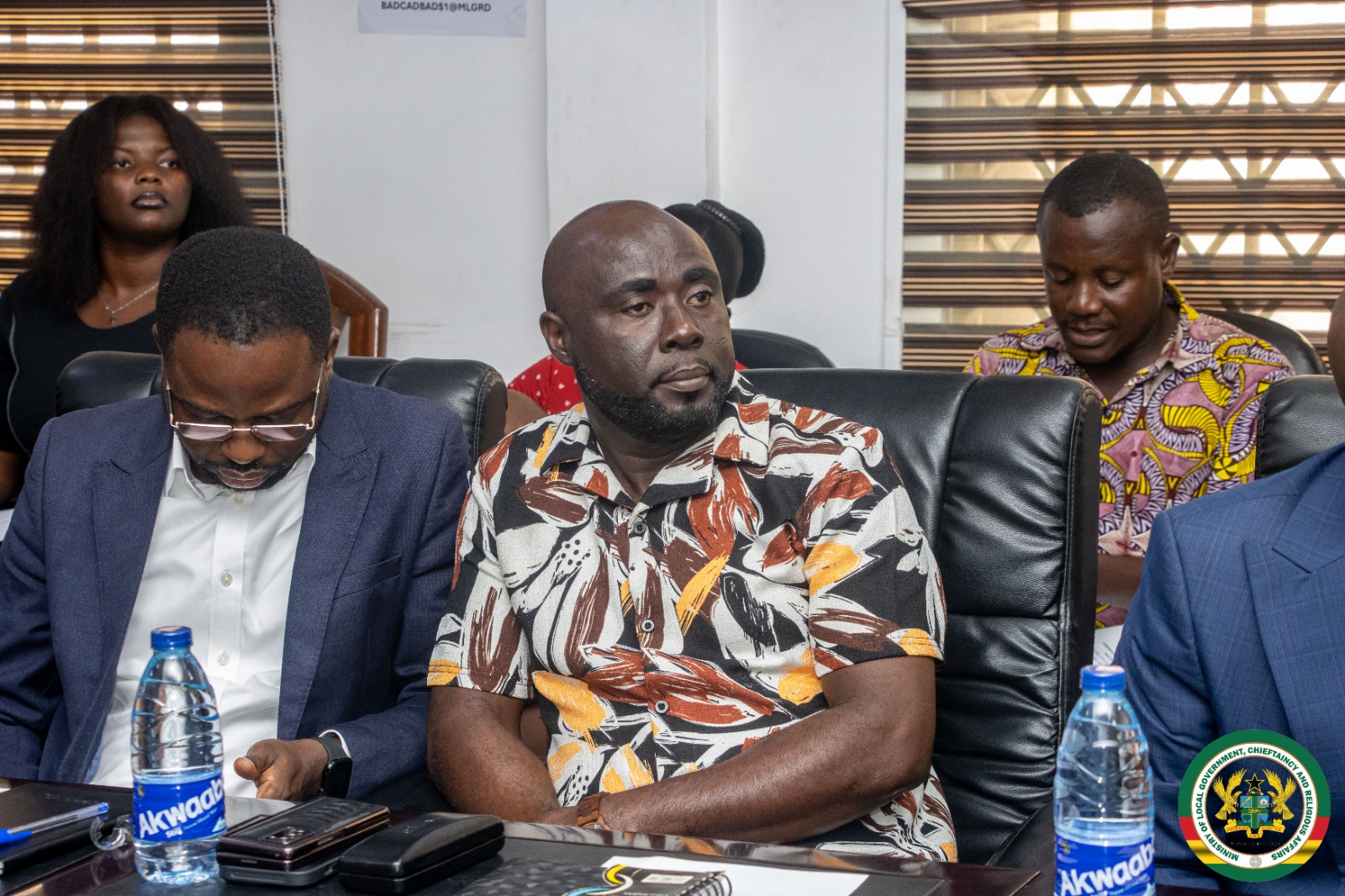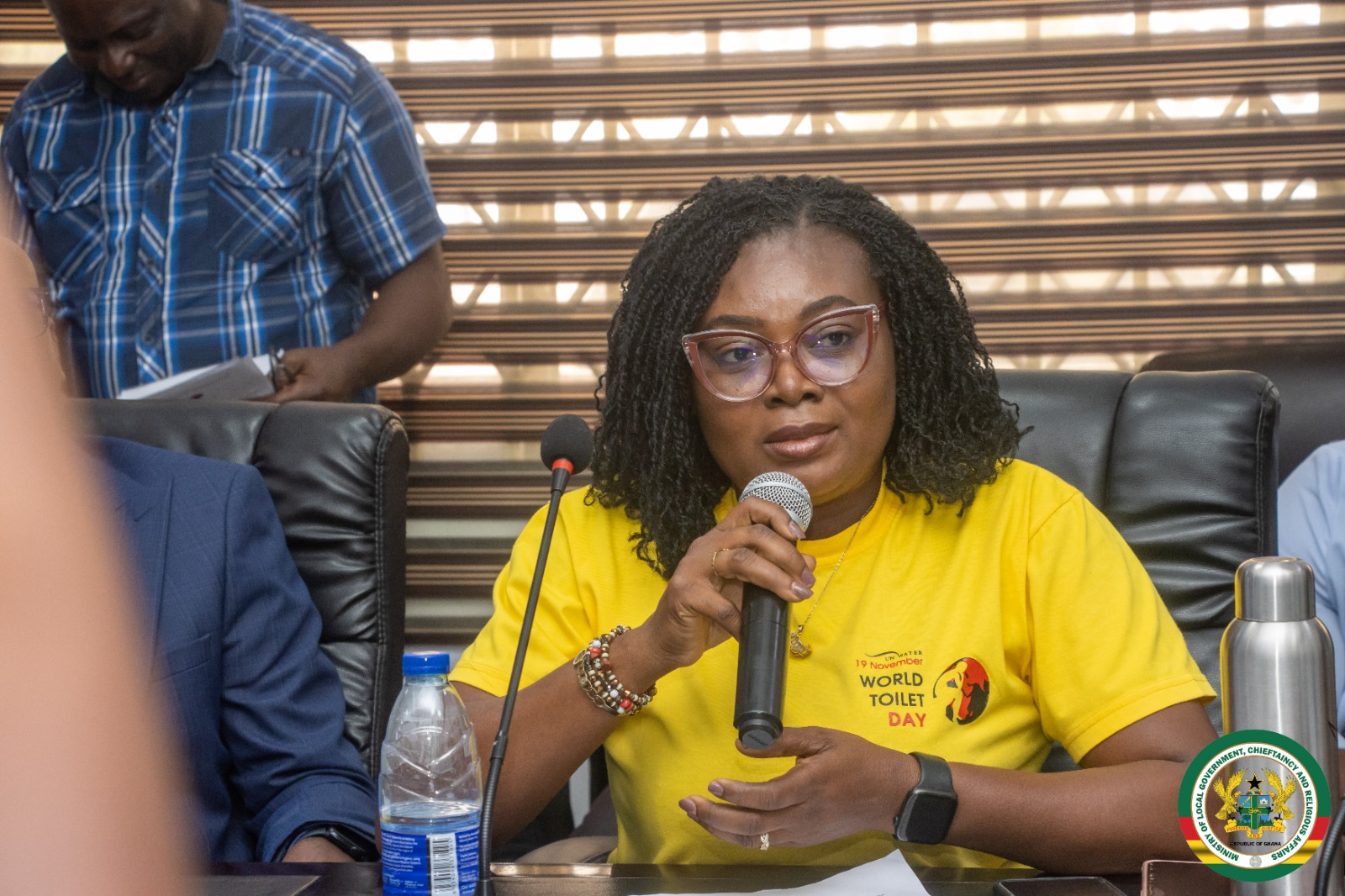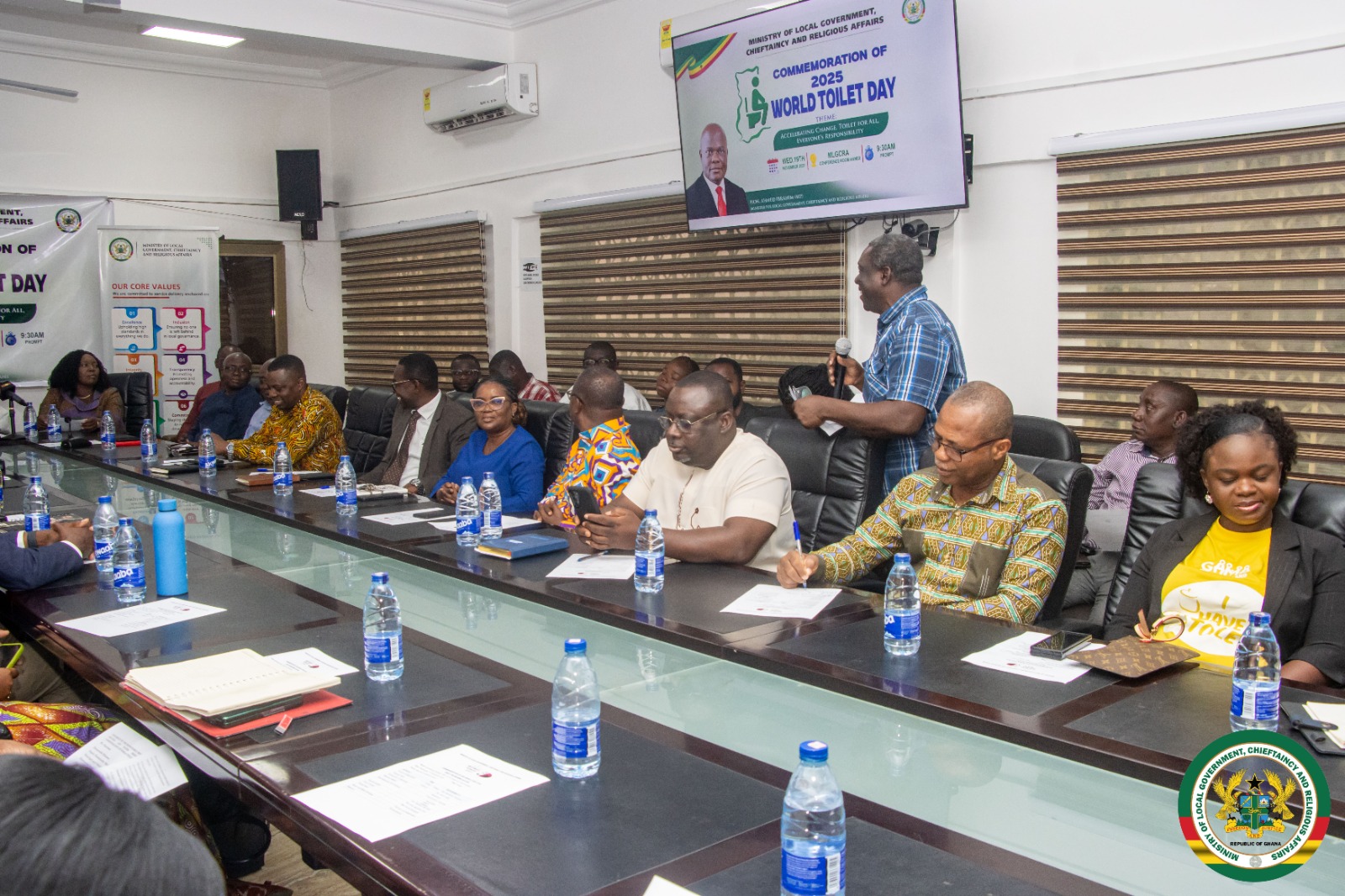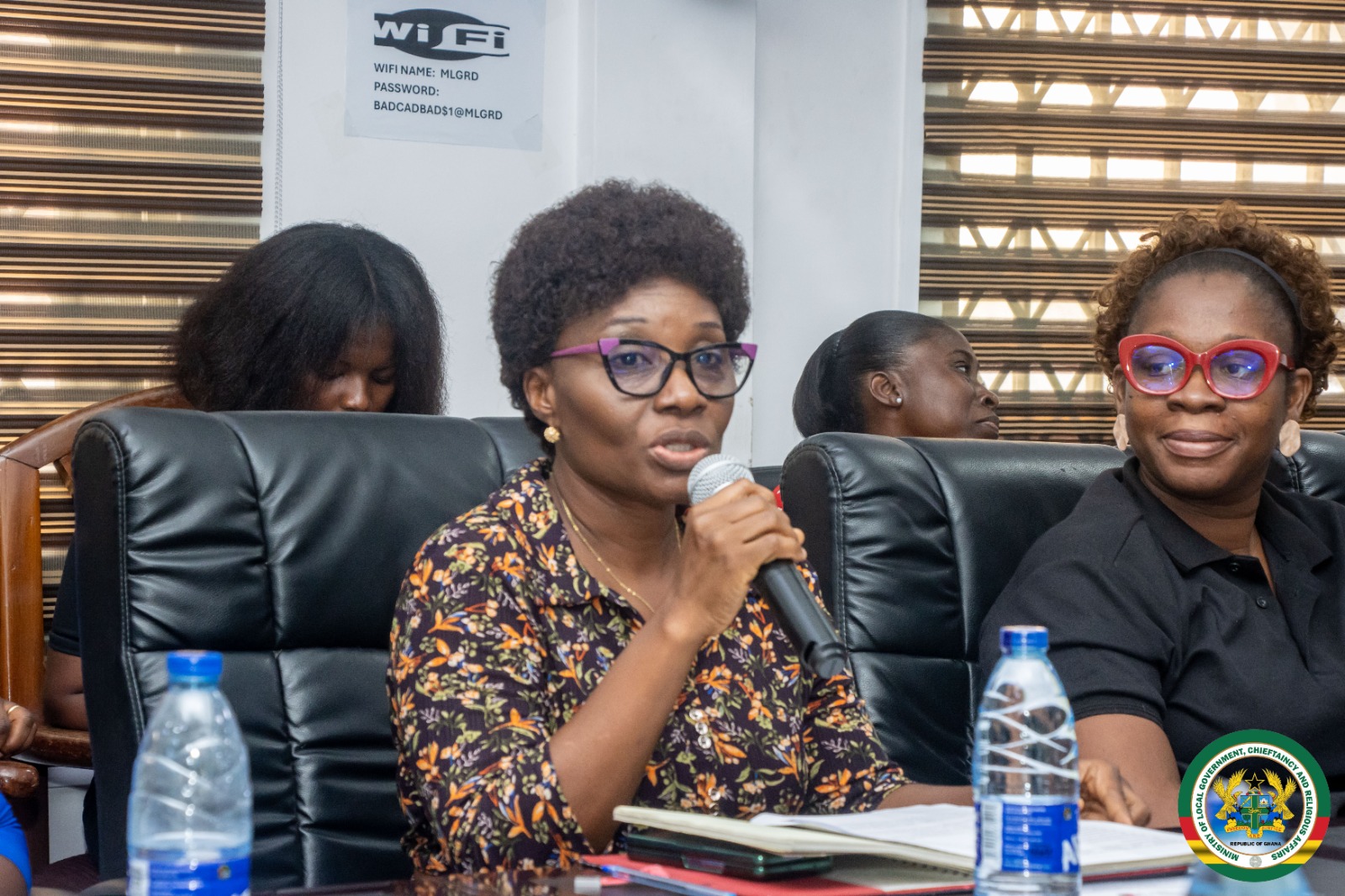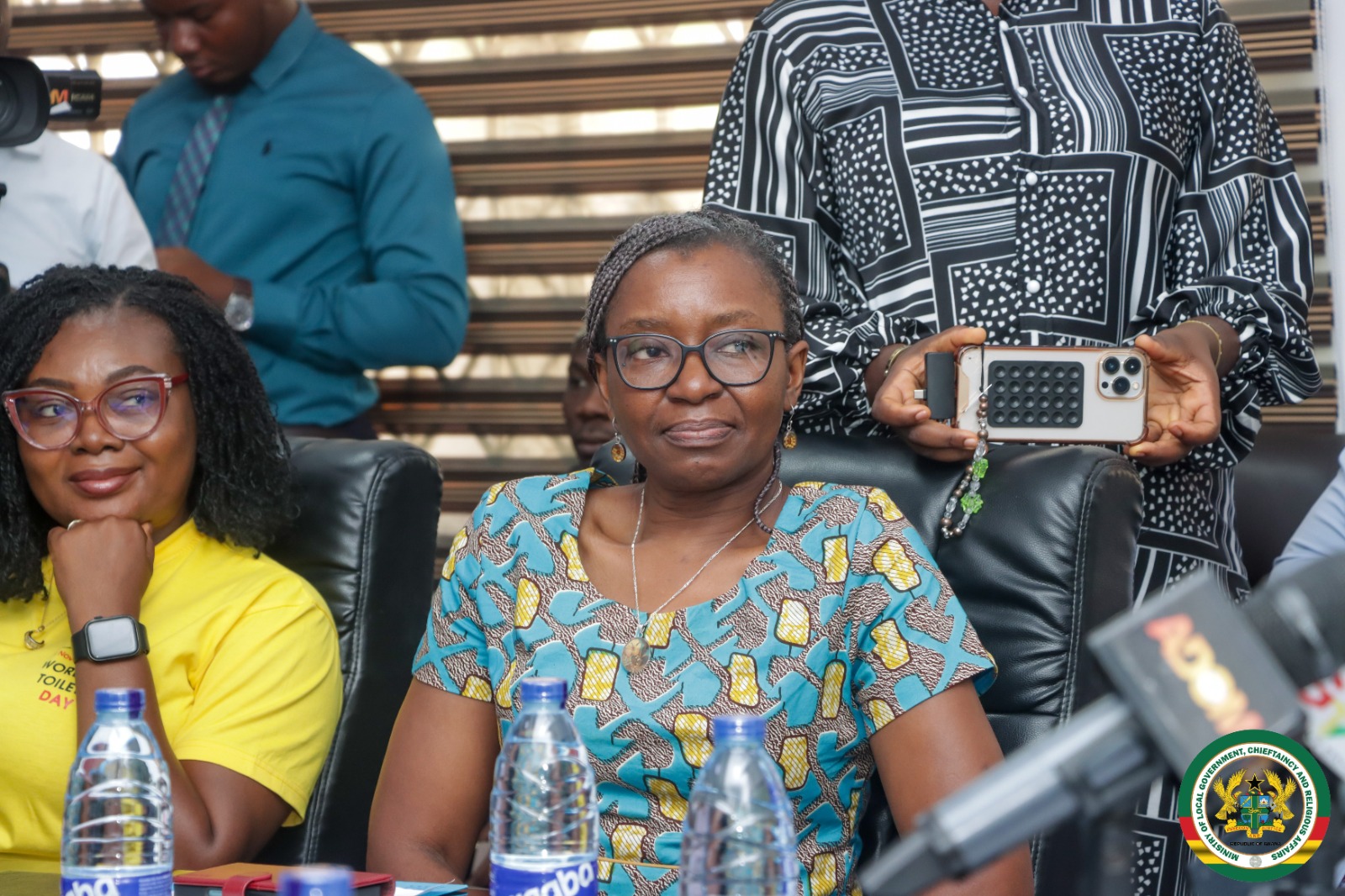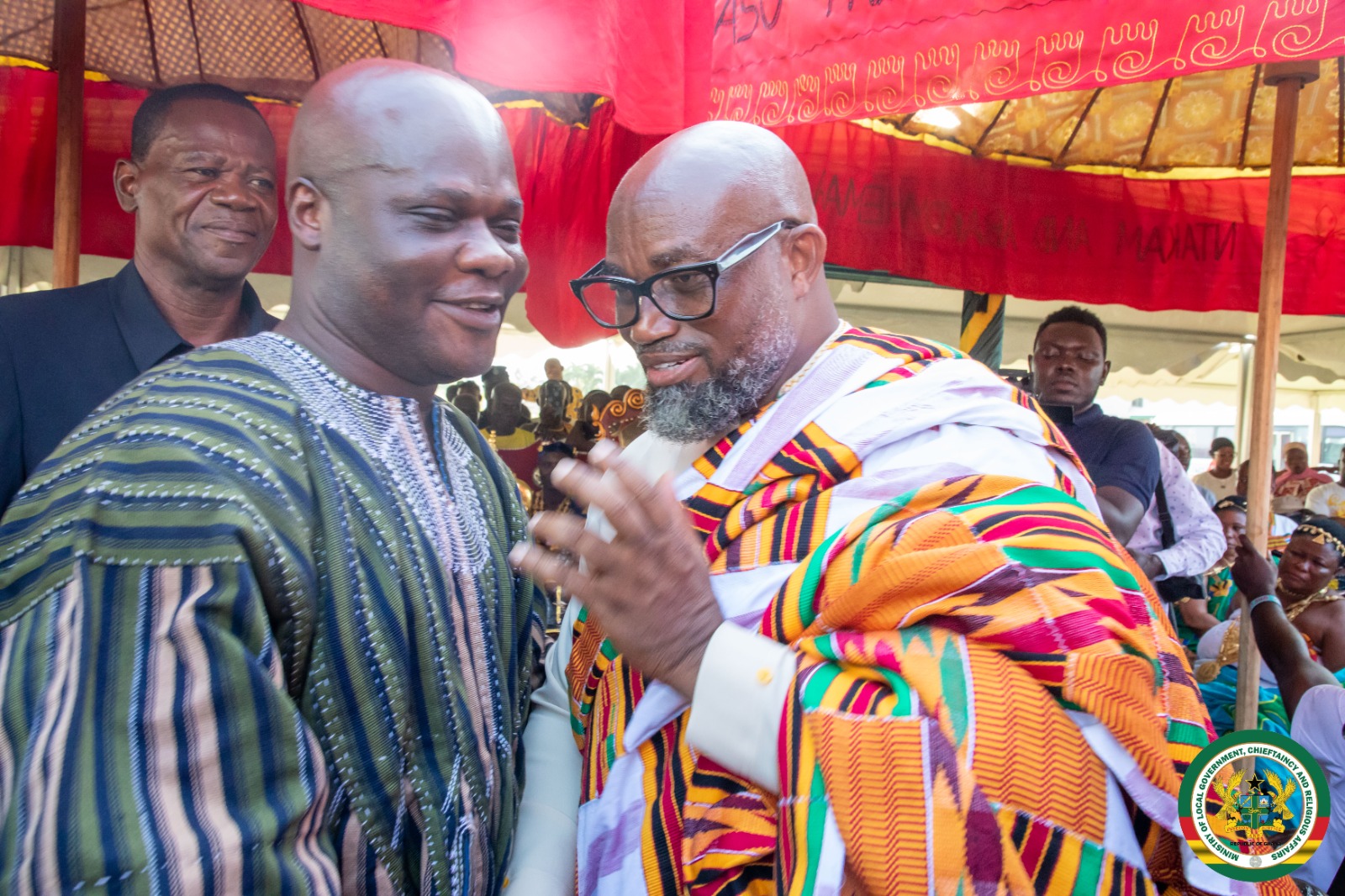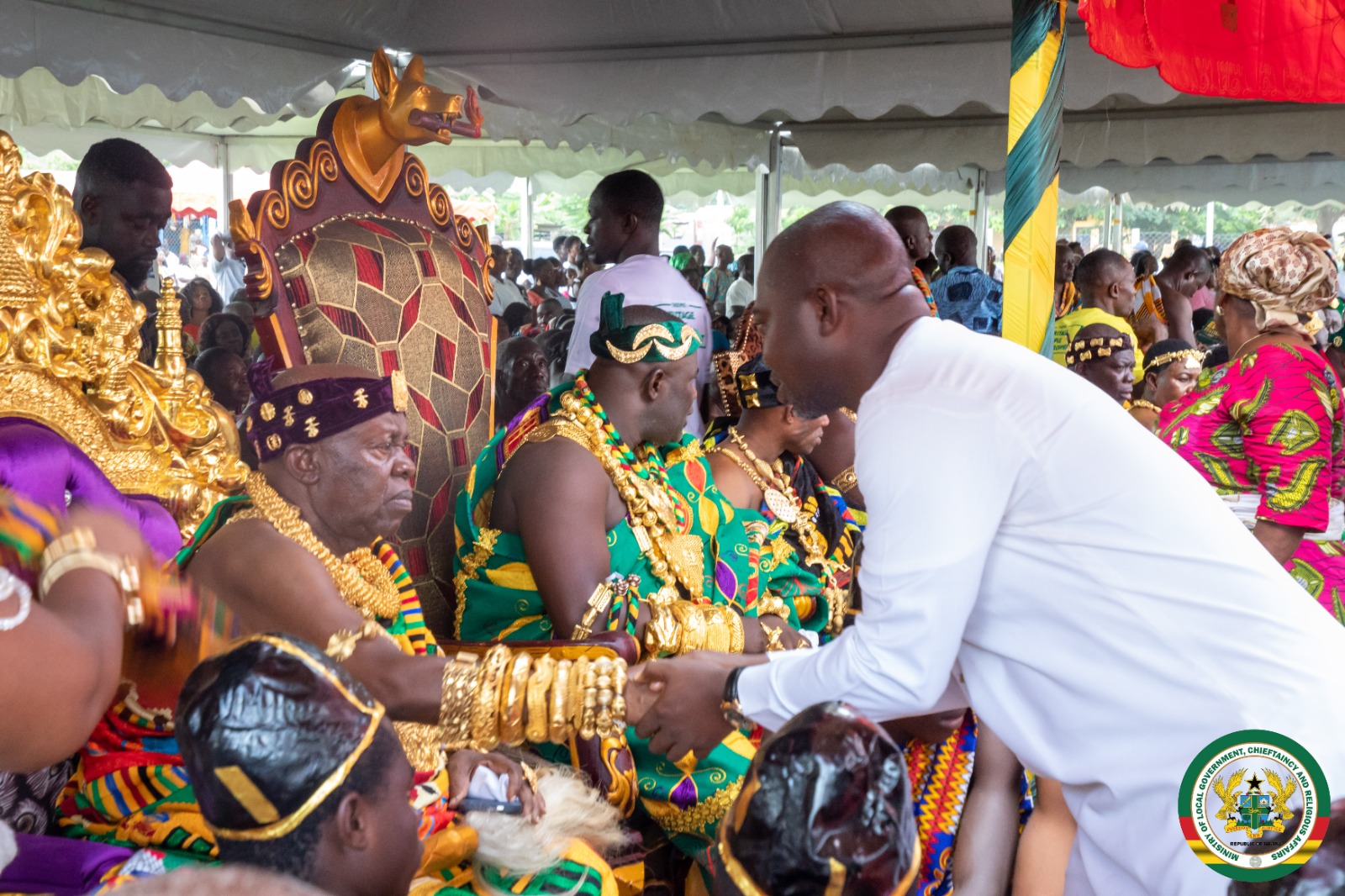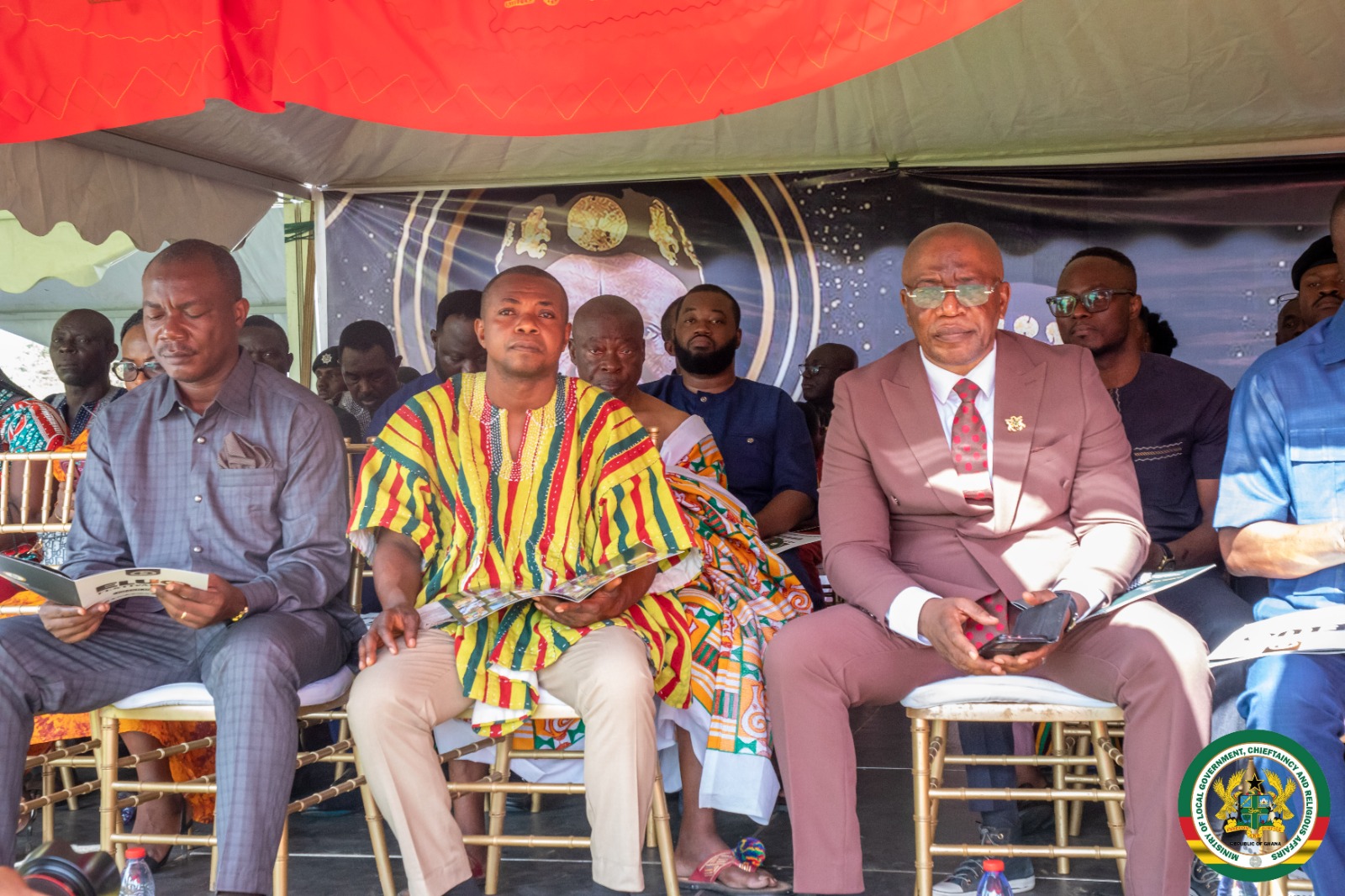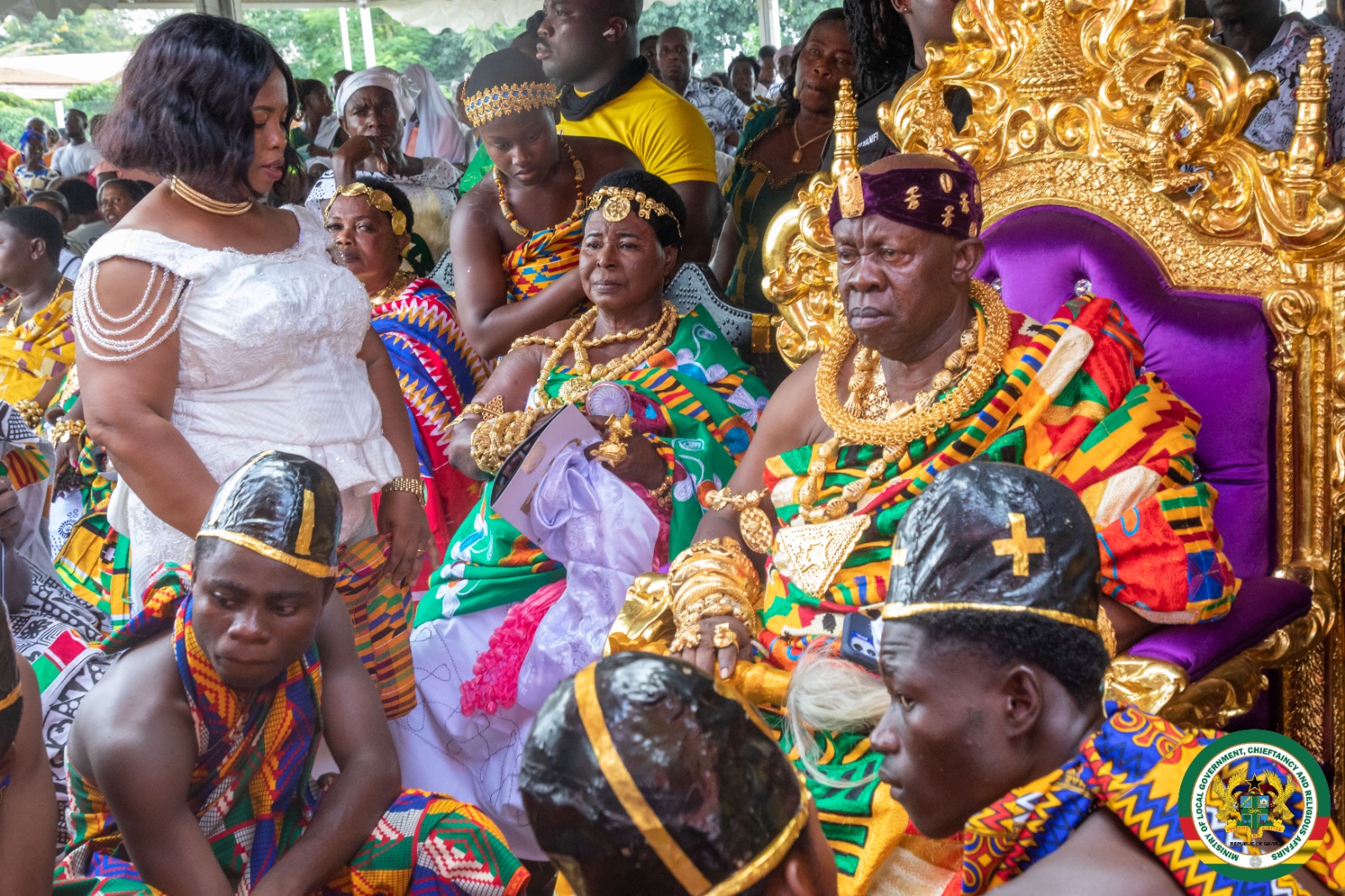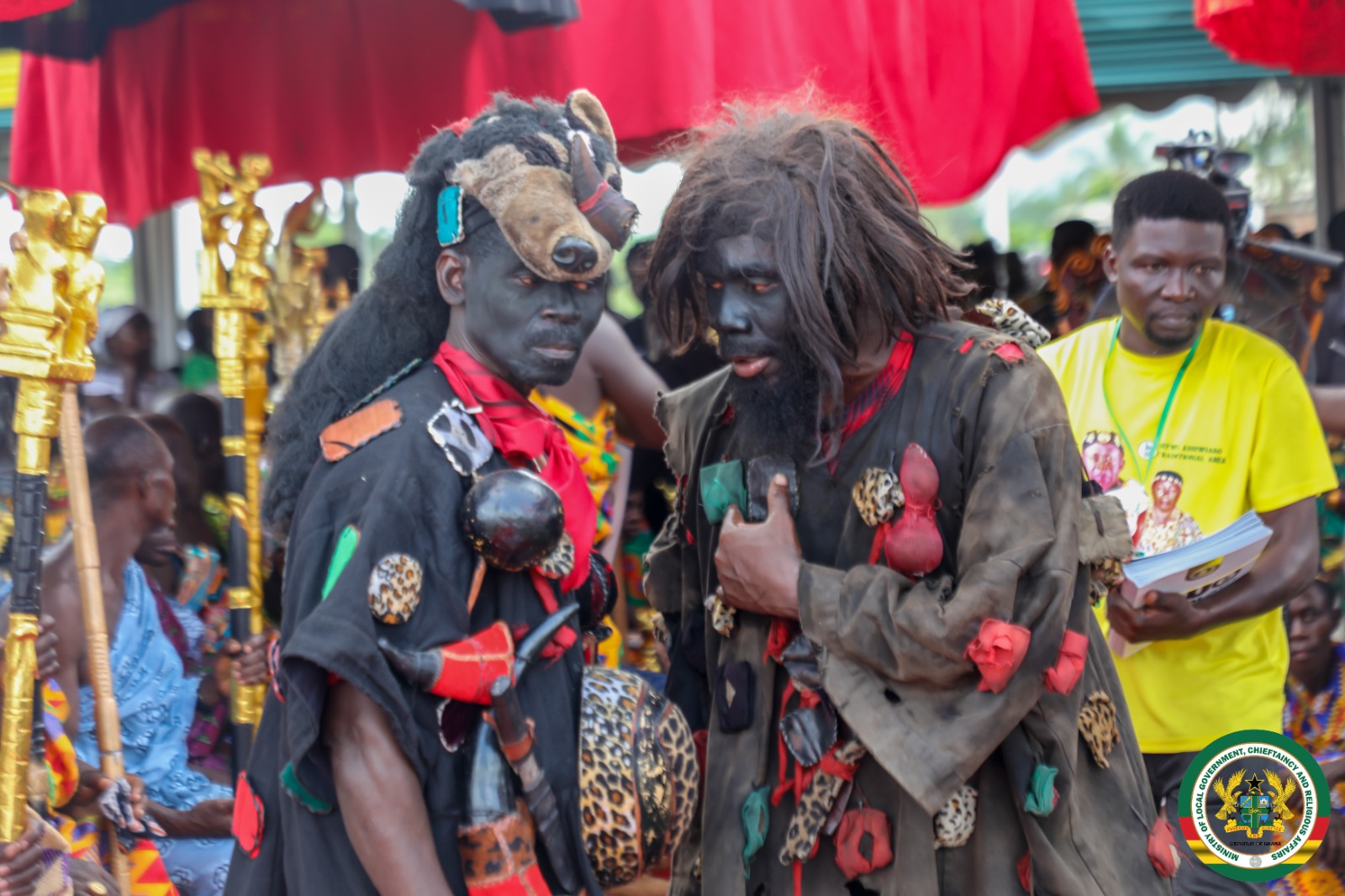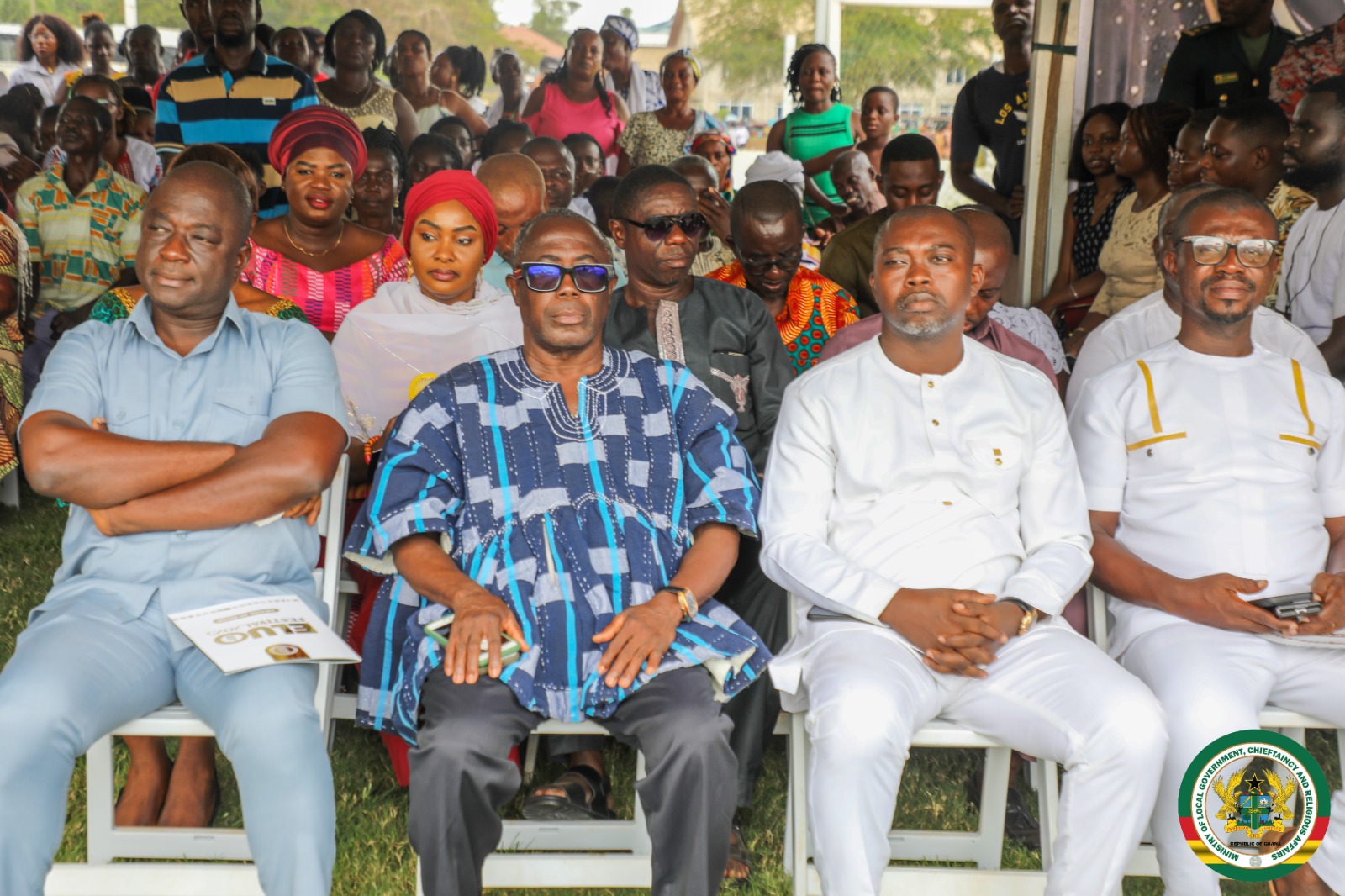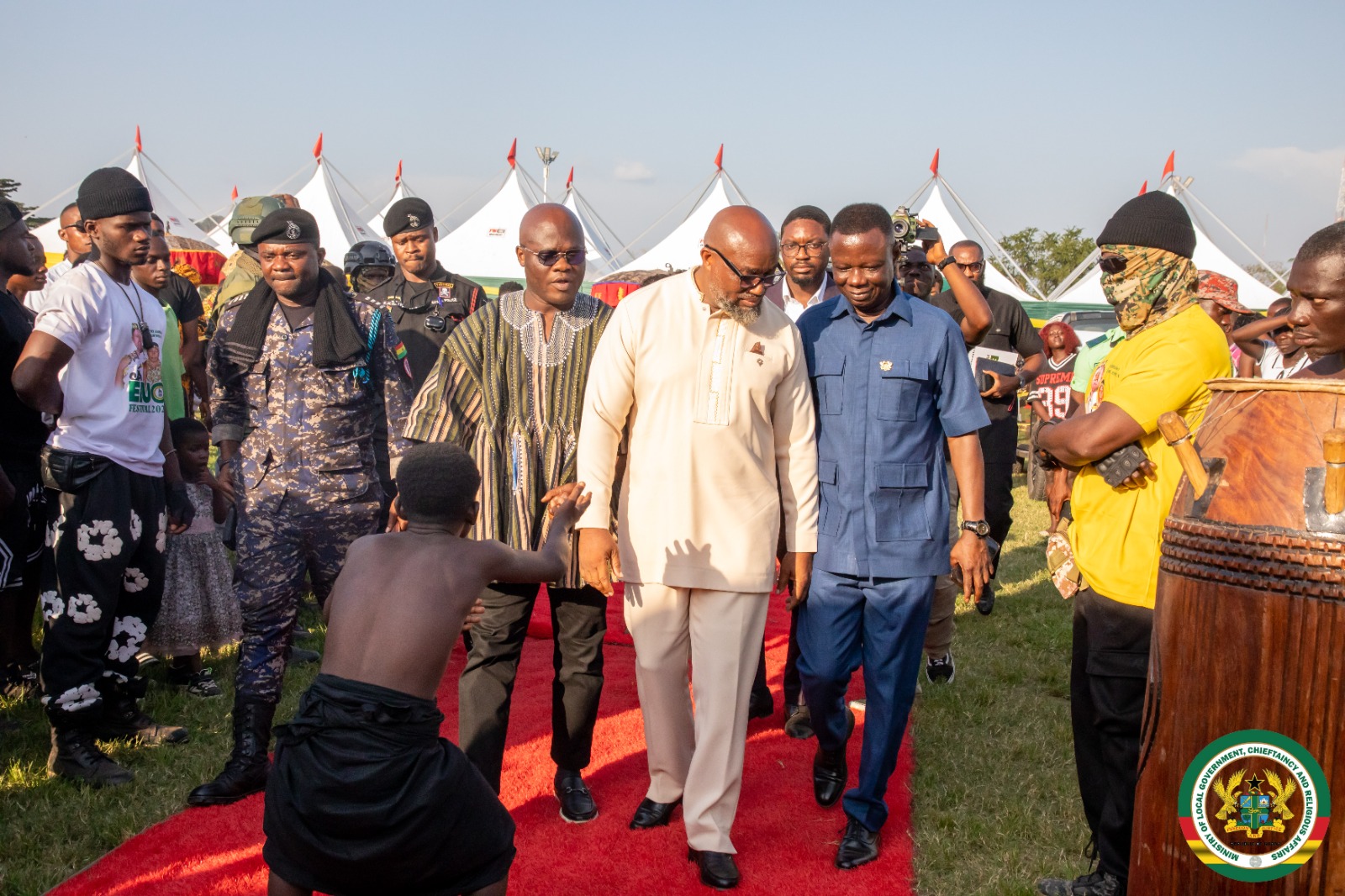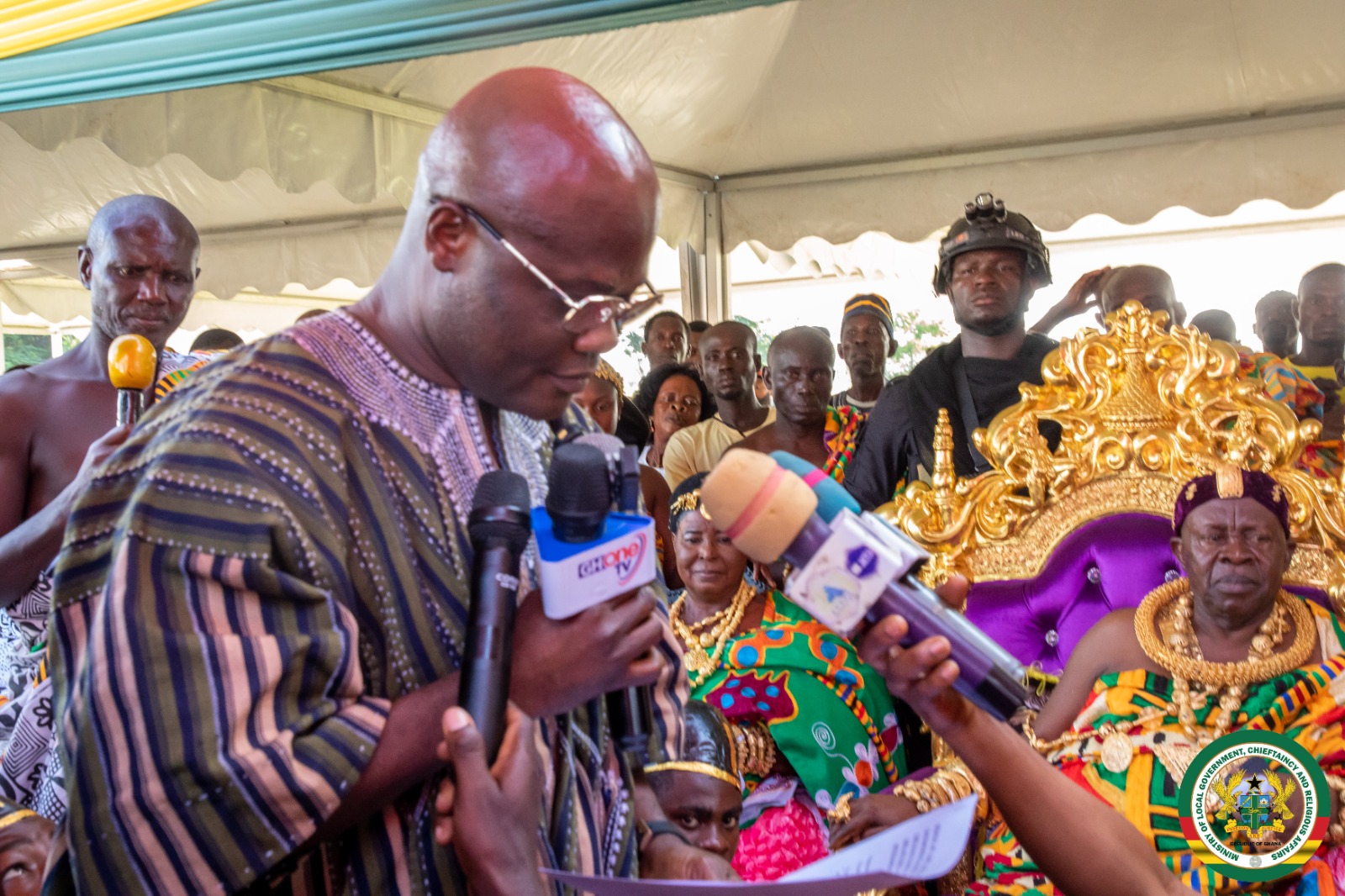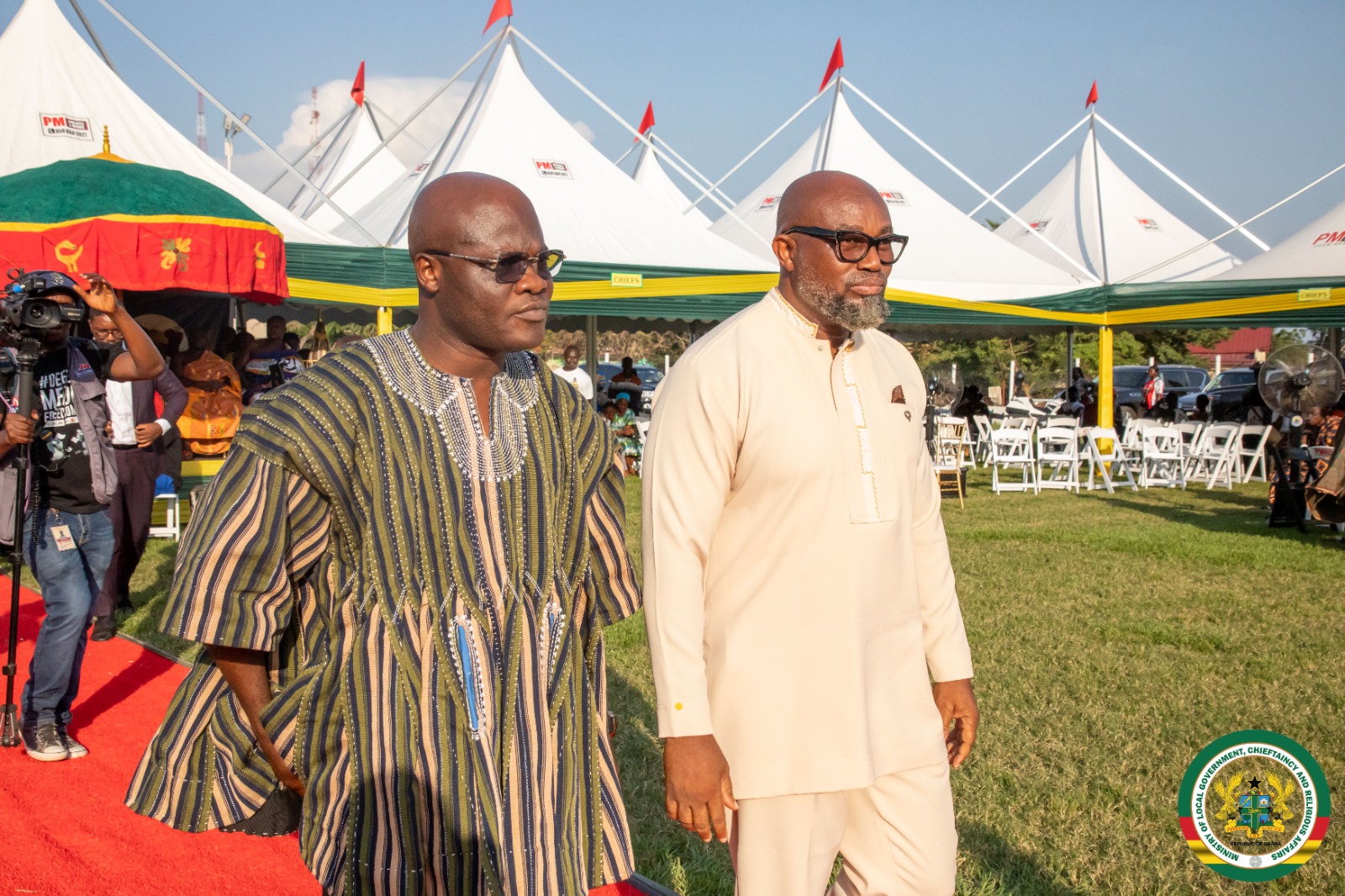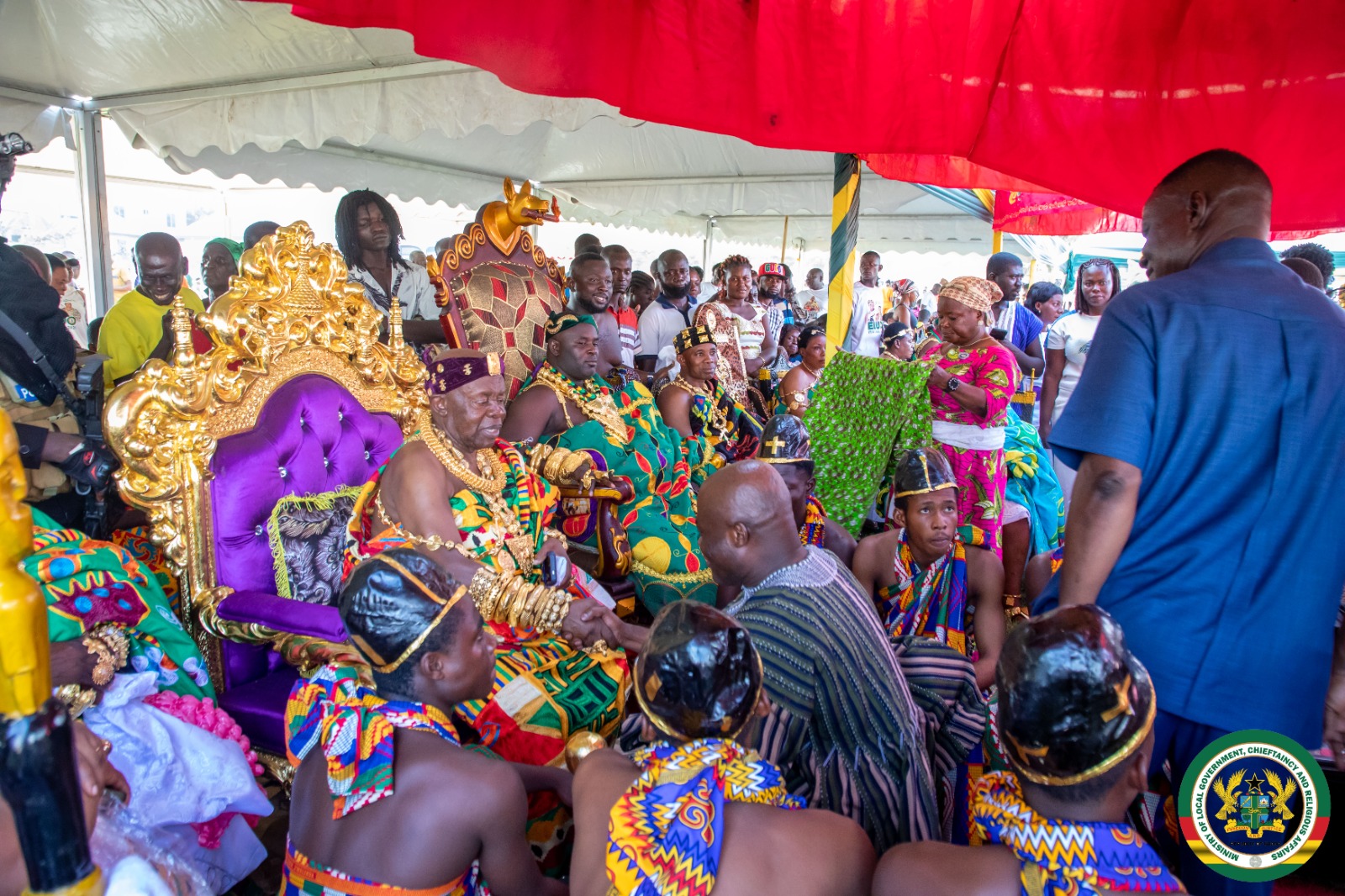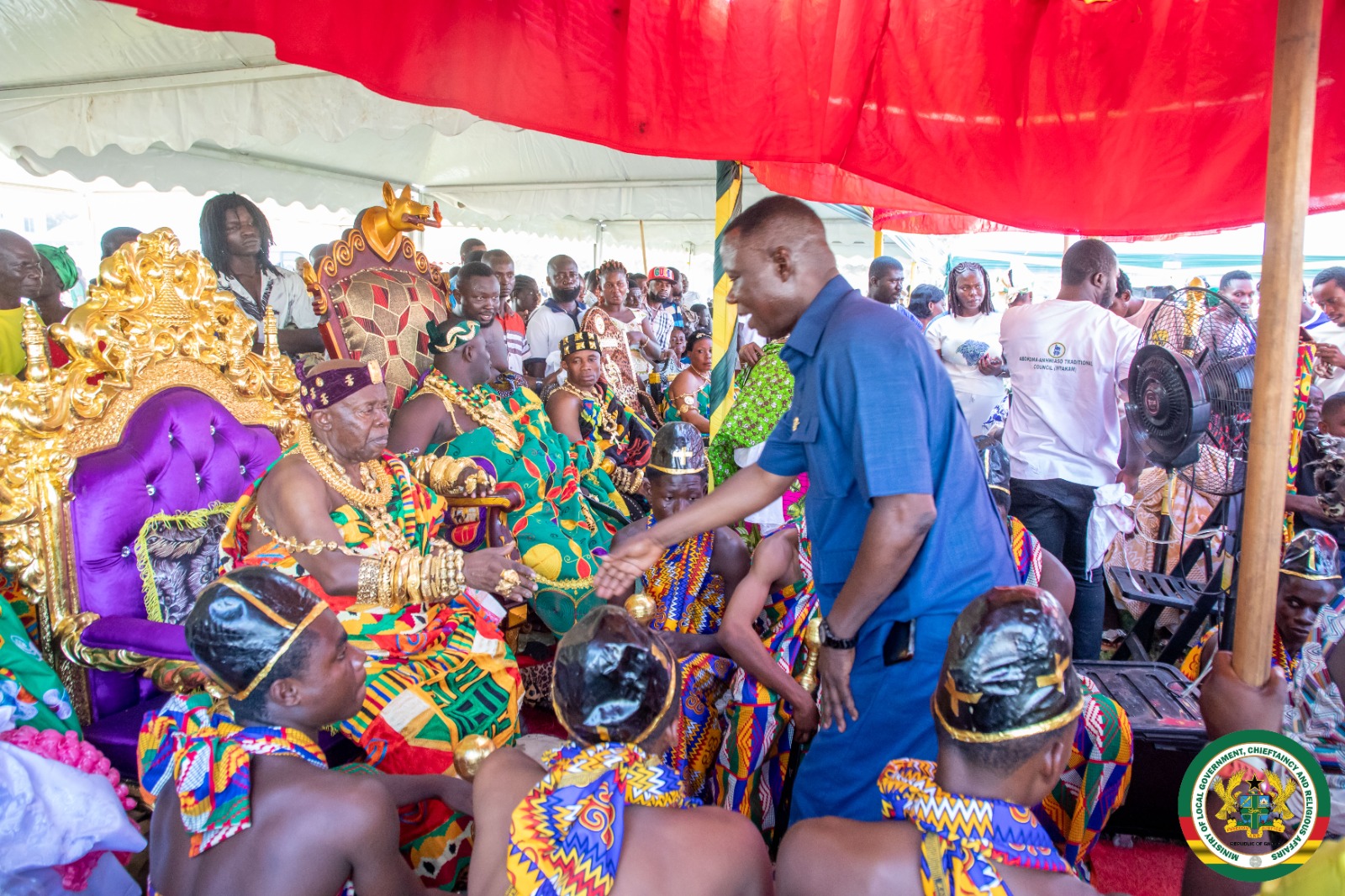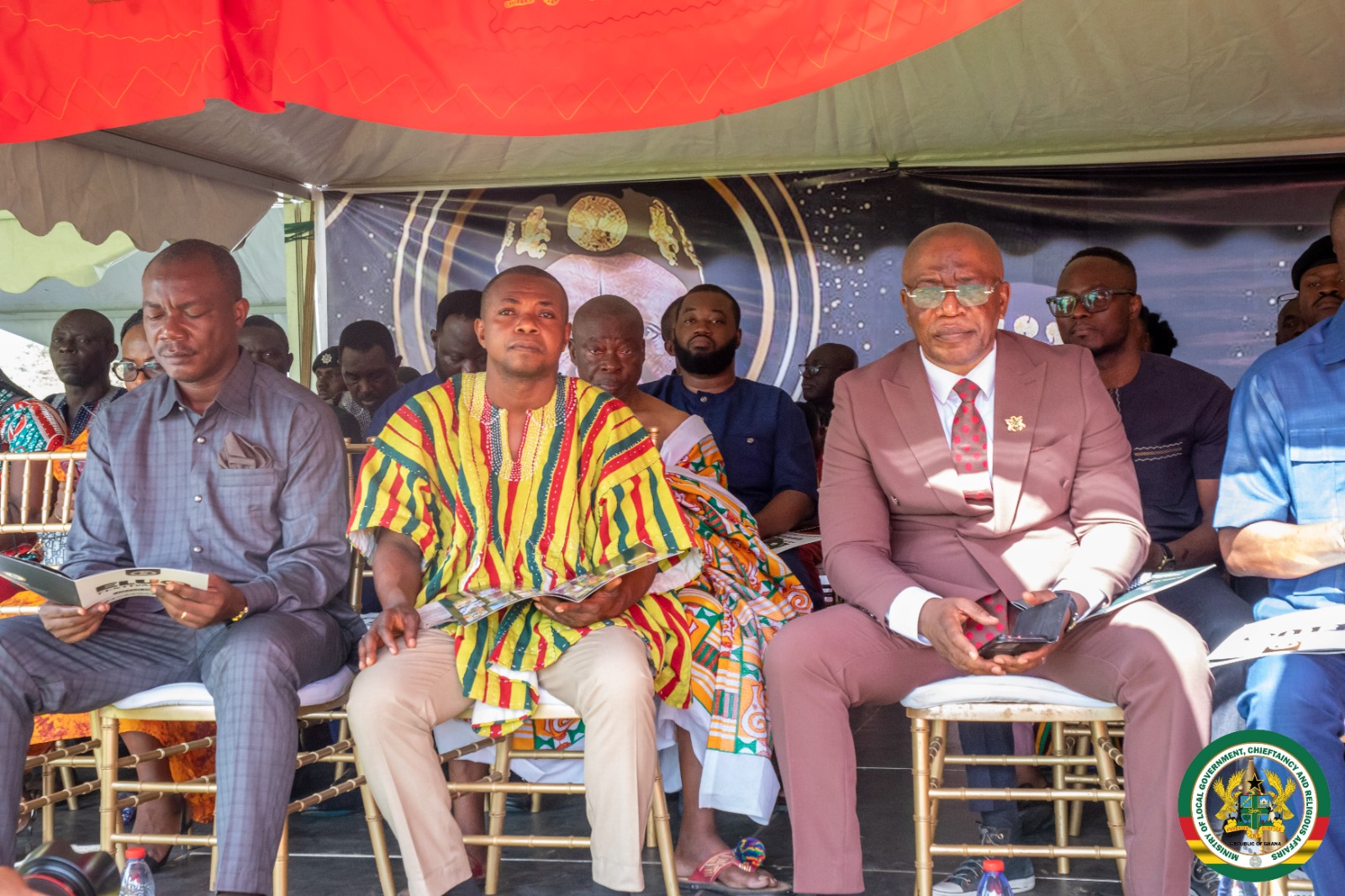Ghana’s commitment to improving sanitation has taken center stage as the world marks the 2025 World Toilet Day today as the Coalition of NGOs in Water and Sanitation (CONIWAS) rallied government, development partners, and citizens to join forces in accelerating access to safe toilets for all.
In her submission, at a news conference in Accra, organized by the Ministry of Local Government, Chieftaincy and Religious Affairs on Wednesday, 19th November 2025 Madam Basilia Nanbigne from underscored the urgency of confronting Ghana’s sanitation challenges with a renewed strength and unified purpose.
While applauding Ghana's impressive strides in water access which was now at Eighty-eight percent (88%), according to the Ghana Statistical Service, she expressed deep concern about the country’s sanitation outlook. The 2022 Demographic and Health Survey reports that one out of every four Ghanaians still practices open defecation. The situation is even more alarming in rural areas, where the rate stands at thirty-nine percent (39%), compared to the twelve percent (12%) in urban communities.
She emphasized that this is a national development concern that requires deliberate, collective, and sustained action, noting that open defecation poses significant public health risks and undermines national progress.
The coalition highlighted the importance of the pending 2025 Environmental Sanitation Policy, which outlines the development of a National Open Defecation Free (ODF) and Safely Managed Sanitation (SMS) Plan. The policy envisions a comprehensive roadmap toward eliminating open defecation and advancing safely managed sanitation for all Ghanaians.
Madam Nanbigne revisited key recommendations from the recent Mole 36 Conference, which commended government’s decision to allocate twenty percent (20%) of Metropolitan, Municipal and District Assemblies (MMDAs) budgets to WASH
The conference further called for strengthening regulatory frameworks within the WASH sector, including the enactment of an Environmental Sanitation Bill to guide service delivery and establish a regulatory body to oversee compliance and coordination across Ministries and Agencies.
As Ghana marks this year’s World Toilet Day, she reiterated CONIWAS’s commitment to work closely with the Ministry and other partners to drive a coordinated, result-oriented national effort. The coalition proposed the development of a sector-wide collaborative action plan, bringing together government, development partners, NGOs, CSOs, and the private sector.
She was of the view that, with strong leadership from the Ministry and collective effort from all stakeholders, Ghana can overcome its sanitation challenges and stay on course toward achieving the Sustainable Development Goals (SDGs).
Source: Stephanie Edem Klutsey
MLGCRA, Public Relations Unit.
The Paramount Chief of Sefwi Anwiaso and President of the National House of Chiefs, Osenkese Ogyeahoho Yaw Gyebi II, has appealed to Government to reinstate land enforcement authority to traditional leaders, arguing that the role of chiefs in land administration remains critical for peace, order and sustainable development in their communities.
Speaking during the 2025 Eluo Festival celebration in the Sefwi Anwiaso Traditional Area, Western North Region, Ogyeahoho Yaw Gyebi II noted that although traditional lands have been placed under the Lands Ministry, chiefs continue to bear the responsibility of addressing land disputes and safeguarding communal lands. He stressed that without the proper enforcement mandate and the accompanying revenue allocations; chiefs are left handicapped while still being expected to resolve conflicts and protect community lands from illegal mining.
According to him, stool lands have been placed under the Ministry of Lands and Natural Resource, but when issues arise, they call on the chiefs to intervene, stating that, it was only fair and reasonable that land enforcement responsibilities and the revenues that come with them are restored to traditional authorities. He emphasized that this reinstatement would help strengthen accountability, improve land management and reduce disputes at the local level.
The President of the National House of Chiefs noted there was an urgent need for a more balanced governance arrangement that recognizes the indispensable role of traditional authorities in land administration, adding that effective collaboration between the state and chiefs is essential for development to thrive.
Ogyeahoho Yaw Gyebi II also used the occasion to caution his chiefs against participating in illegal mining (galamsey), pledging to hand over any offenders to law enforcement agencies. He said, chiefs must lead by example, especially in matters relating to land protection and environmental stewardship.
Touching on the festival’s theme, “Our Heritage, Our People and Development,” the Paramount Chief urged the community to uphold their cultural identity in the face of increasing Western influence. He called on the youth to remain proud of their heritage and preserve the customs that define the people of Sefwi Anwiaso.
As part of his developmental agenda, Ogyeahoho Yaw Gyebi II launched the Ogyeahoho Educational Fund and ICT Project, designed to enhance educational opportunities and bridge the digital divide in the traditional area. Demonstrating personal commitment, he donated GH¢700,000 to support the initiative.
He expressed appreciation to Government; the Minister for Local Government, Chieftaincy and Religious Affairs; the Western North Regional Minister; the Municipal Chief Executive; staff of the National House of Chiefs; and the chiefs and people of Sefwi Anwiaso for their continuous support in advancing unity and development.
Source: Chantal Aidoo
Public Relations Unit, MLGCRA
The Minister for Local Government, Chieftaincy and Religious Affairs, Hon. Ahmed Ibrahim, has reaffirmed government’s commitment to strengthening Ghana’s chieftaincy institution as a strategic partner in national development. He made the remarks on Saturday, November 22, 2025, at the colourful celebration of the 2025 Eluo Festival of the Sefwi Anhwiaso Traditional Area.
The festival, which is to celebrate abundance of Yam, was on the theme “Our Heritage, Our People, Our Development,” brought together traditional leaders, government officials, development partners, and thousands of indigenes who gathered to celebrate their cultural identity and renew their commitment to community development.
Addressing the gathering, the Minister praised the chiefs and people for preserving the Eluo Festival, describing it as a sacred symbol of nourishment, hard work, and renewal. He noted that Ghana’s cultural heritage remains a powerful pillar for national unity, social cohesion, and sustainable development.
Hon. Ibrahim outlined several ongoing government initiatives aimed at modernizing and strengthening the chieftaincy institution. Key among them is the review of the Chieftaincy Act, which seeks to restore the authority of chiefs to summon subjects who breach traditional laws and disturb community peace. He emphasized that such reforms are essential in reinforcing social order and reducing rising conflicts within communities.
He further announced that the Ministry was facilitating the validation and legalization of lines of succession to minimize ambiguity and reduce chieftaincy disputes, which continue to hamper stability and development in several traditional areas.
The Minister stated that government, recognizes the central role of Chiefs and Queen mothers in mobilizing communities, promoting discipline, enhancing environmental sanitation, and supporting local governance structures.
He added, it was for this reason that government is upgrading and constructing modern office complexes for the Houses of Chiefs, especially in the newly created regions, to provide a conducive environment for adjudication and administrative work.
The Minister called for renewed unity and discipline among community members, stressing that development thrives only in peaceful environments. He encouraged the traditional leaders and residents to support community-led environmental sanitation programmes and protect farmland, forests, and water bodies for future generations.
Hon. Ibrahim also conveyed warm regards from the President and commended the traditional authorities for their unwavering leadership and continued partnership with government.
The President of the National House of Chiefs and Paramount Chief of Sefwi Anhwiaso, Ogyeahoho Yaw Gyebi II, hosted the event and it was graced by Paramount Chiefs of some Regional Houses of Chiefs, together with other Chiefs and Queen mothers and government delegation including the Guest of Honour, Dr. Daniel McKorley.
Source: Chantal Aidoo
Public Relations Unit, MLGCRA

